Two years of COVID-19: 3 families share how the pandemic changed the way they live
The global pandemic forced people everywhere to face the challenge of change.
In March 2020, COVID-19 shut down the world. The global pandemic would force people everywhere to face the challenge of change: two years of saying goodbye to loved ones, businesses closing and waiting to reopen, doctors waging battles against new variants and striving to develop effective vaccines.
A 20/20 special, “24 Months That Changed the World,” airing March 30 on ABC at 10 p.m. ET, explores how COVID-19 disrupted lives and created lasting change across all aspects of human life.
The question remains: How do we live now?
Watch the full story on "20/20" on March 30 at 10 p.m. ET on ABC.

24 Months That Changed the World
Explore how COVID-19 disrupted and created lasting change across all aspects of human life.
Three families spoke to ABC News about their experiences with changing the way they lived during the pandemic and what the future looks like for their households.
The McDowell Family
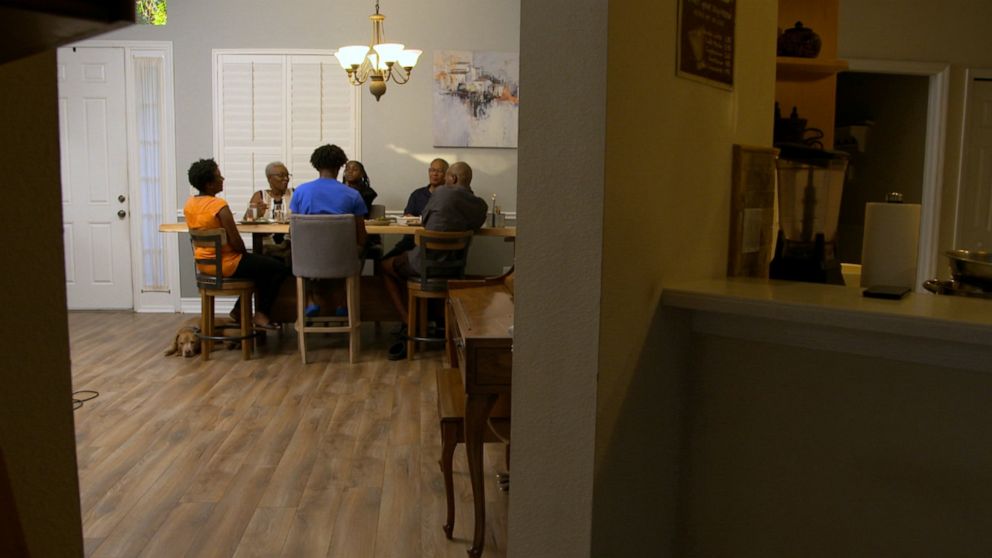
Talib McDowell, a hotel manager from Tampa, Florida, was furloughed at the beginning of the pandemic.
“It was the first time that I ever personally worried about the future of our family and how we were gonna get through the disaster,” said McDowell.
The McDowell family decided to temporarily reimagine their living situation and moved three generations under one roof. McDowell said the purpose was to pool the family’s resources and get through the pandemic together.
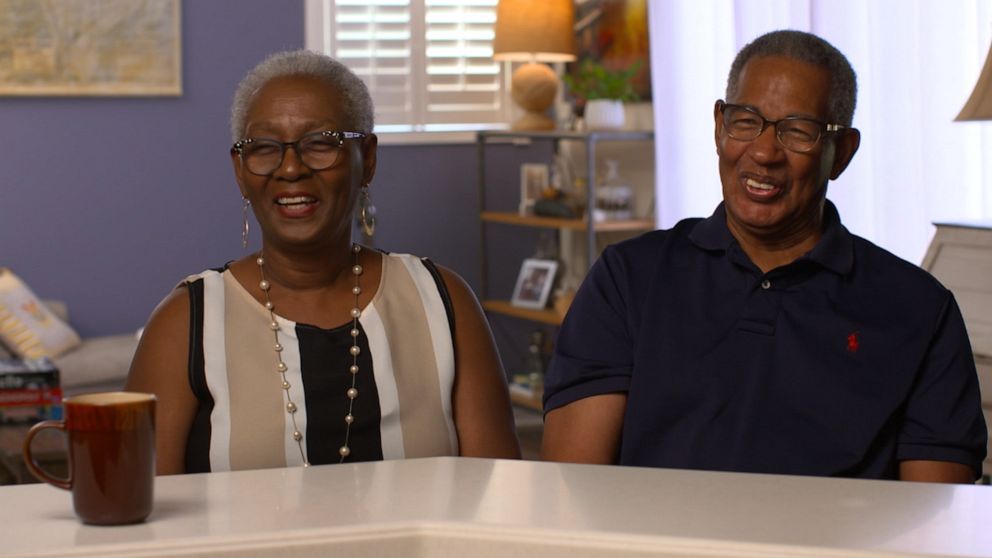
“If we don't think outside the box, if we don't really rely on each other to help us through, something's gonna fall,” said McDowell. “We can really kind of pool our resources together and figure out how to get through this thing, because we don't know how long it's gonna be.”
Grandparents Janice and Wade McDowell pitched in to help take care of the kids, including helping the family adopt a healthier lifestyle.
“I didn’t expect them to tell on us when we would sneak snacks at night out of the pantry,” said Janice McDowell.
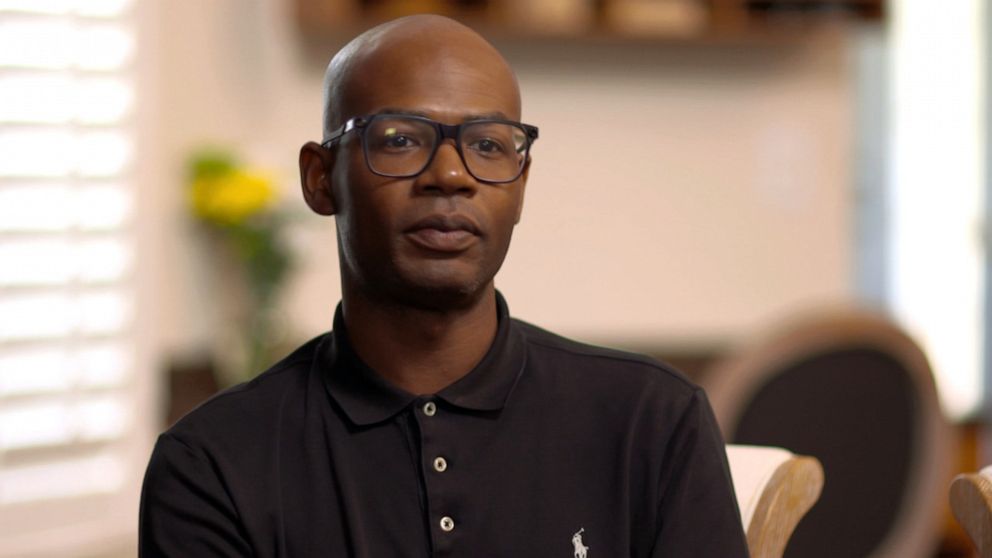
For the McDowell family, a virus that kept people apart -- brought them closer together. The family now has plans to build a new home with a grandparents' wing.
“The past 24 months has shown truly, truly what family can do for you, what we can do for each other, what we can bring to the table and make things work,” said Talib's wife, Joan McDowell.
The Irby Vu Family
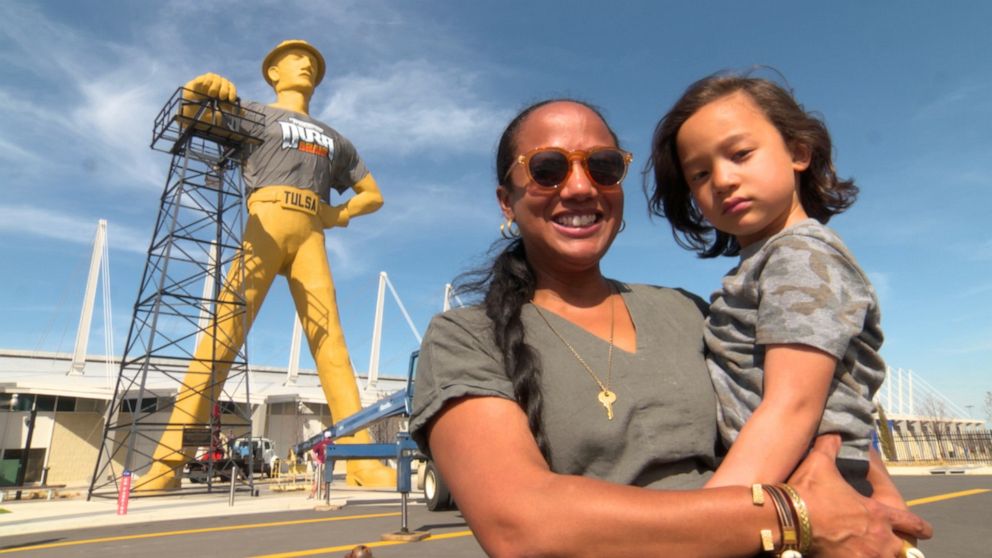
Allison Irby Vu is a financial planner and single mother who lived outside Washington, D.C.
When COVID-19 swept across the world, she was the sole provider for her 3-year-old son Enzo and quickly realized she needed to add the role of “teacher” to her resume. “He was going to virtual school, and when he'd go to bed, I'd go to sleep, too, because I was exhausted,” said Irby Vu. “But then I'd get up at like one or two in the morning and work until he woke up.”
The family fell into a routine that oscillated between remote work and remote school. Irby Vu said she realized at one point that the family’s new life didn’t have to be in Washington, D.C. -- it could be anywhere.
“All we did was I worked, he played. We weren't connecting with friends and family, and I realized I could do that anywhere,” said Irby Vu.
With so many folks working remotely, smaller and more affordable cities used the opportunity to lure new residents with incentives. Irby Vu decided to take advantage of the incentivized relocation program, Tulsa Remote, and moved to Tulsa, Oklahoma.
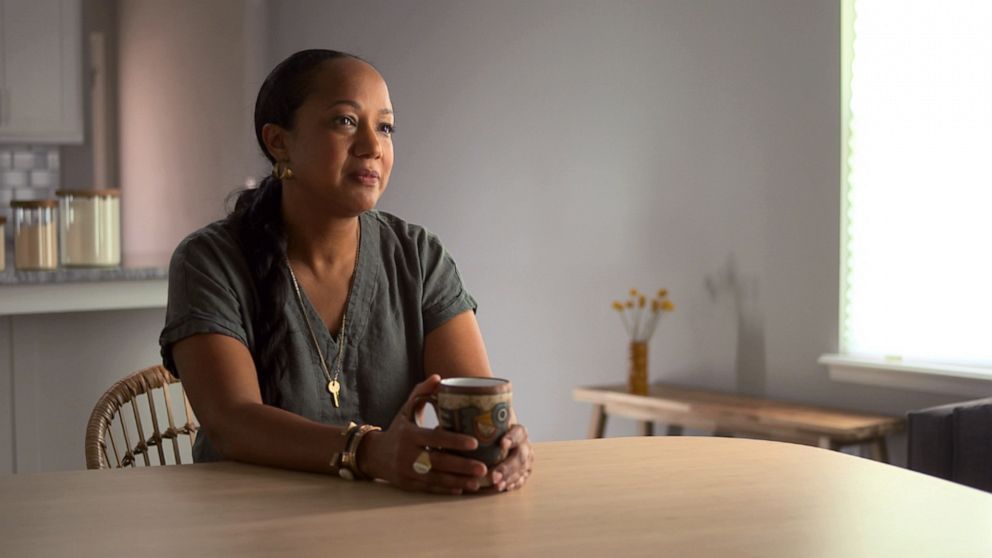
“It's $10,000 to move to Tulsa and be a part of the program. You have to live in proper, within the city limits, for a year,” said Irby Vu. “I've always wanted to move to another place that I didn't know and just see what would happen. When else would we do this?”
Irby Vu said since moving to Tulsa, she has no plans on returning to Washington, D.C.
“To be a present mother, creative in my work and to be able to do all of those things and not be depleted at the end of the day; it's a big shift,” said Irby Vu. “I think a lot of people have had that taste of it and aren't going to want to let it go.”
The Hyatt Family
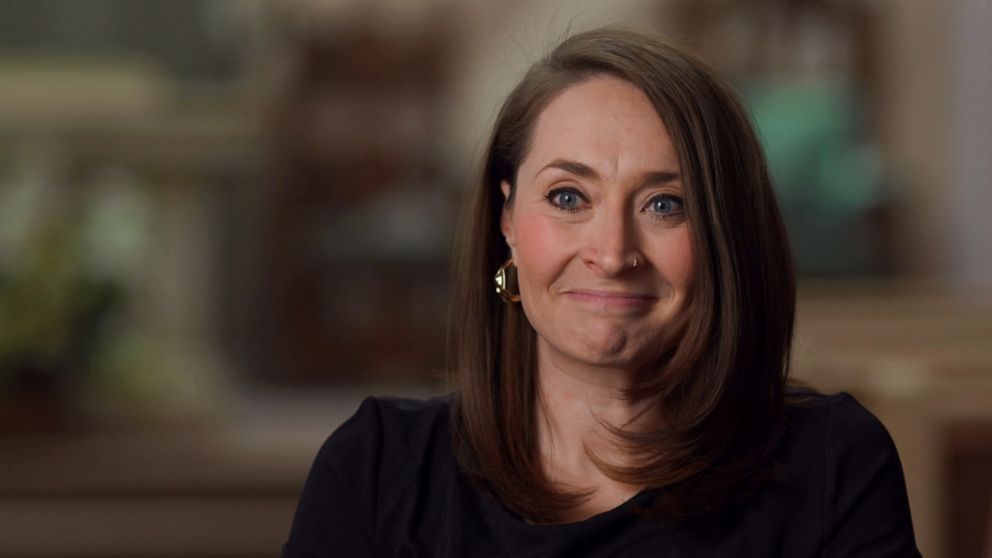
Rather than move out or switch careers, Emily Hyatt, a rabbi from Denver, adjusted her living situation to stay connected to her synagogue congregation.
She said she knew that in such challenging times, they needed her now more than ever.
Hyatt, who is a single mother, decided to bring the congregation into her small apartment, virtually.
“My desk is in my room right next to the bed. And so I would put my son in the bed with snacks and Legos, said Hyatt.
For her, and many other religious leaders across the country, it was a paradigm shift.
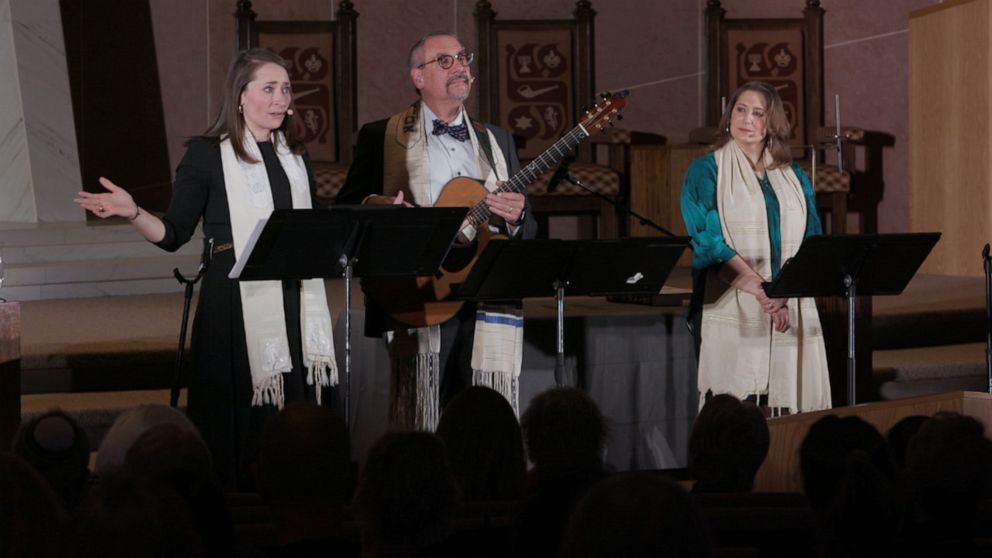
“We figured out how to do it differently, how to connect differently, how to recommit to the community that we're a part of and we stopped being unrooted,” said Hyatt, who would perform virtual weddings and memorials from her bedroom.
Hyatt said that by inviting the congregation into her own home, she was able to see the vulnerability and humanity of its members.
“When they come to sit in my office, they're buttoned up, they're on their best behavior. When they're at home, they are their real selves,” said Hyatt.
Despite the congregation returning to in-person services, Hyatt said that the online services have become an integral part of the community.
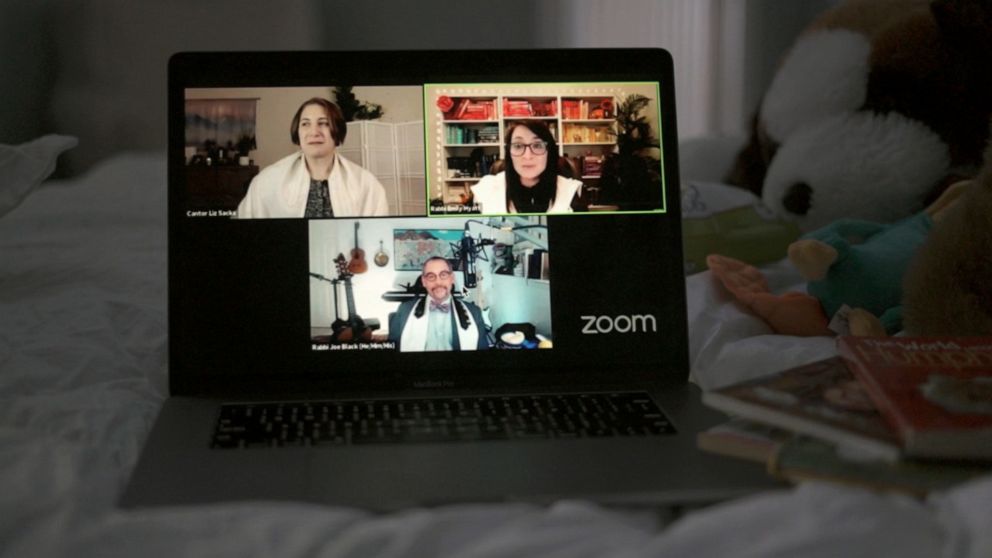
“We have people that participate in our online services from all over the country,” said Hyatt.
She added that change in the face of adversity is central to living now.
“A word that has come up over the past few years has been the word resilience. Resilience is not about being impacted. Resilience is not about hurting,” said Hyatt. “It's not about reacting or suffering. It's about how we come back.”



